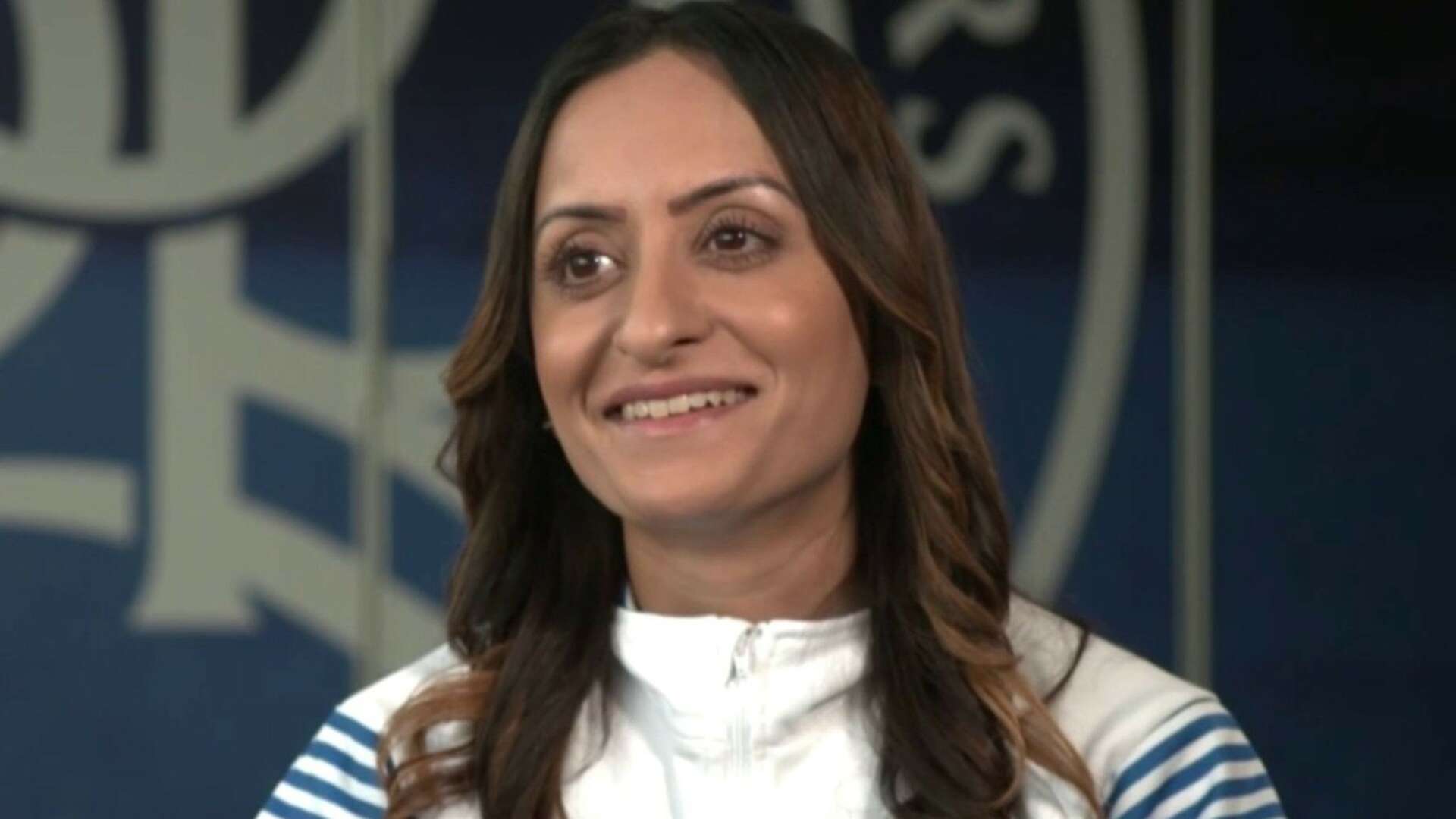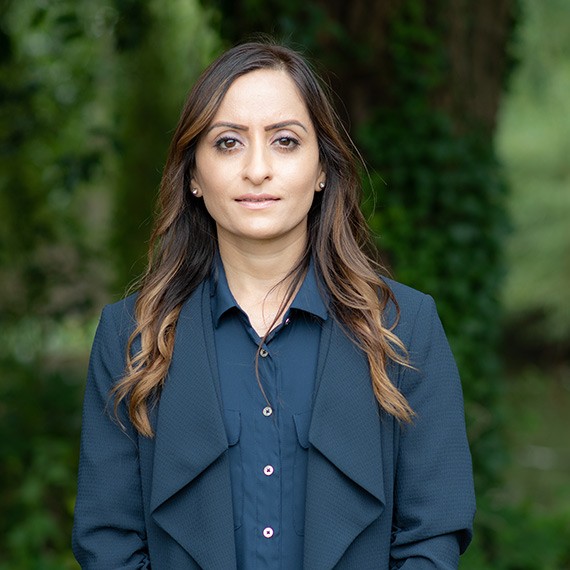We were lucky to catch up with Manisha Tailor recently and have shared our conversation below.
Manisha, looking forward to hearing all of your stories today. It’s always helpful to hear about times when someone’s had to take a risk – how did they think through the decision, why did they take the risk, and what ended up happening. We’d love to hear about a risk you’ve taken.
Since the age of 8 years old, my twin brother and I together ate, drank and breathed football – which at times got us into quite some bother at school. I was an Indian girl who wanted to play football. An Indian girl who was perceived to be going against what everyone had always done and defying cultural norms; one who had to fight and would not be defeated.
We all need people who inspire us to do and be better and for me, my twin was that person and the reason I fell in love with the beautiful game we know as football. To him, it didn’t matter that I was a girl and that he didn’t see many girls playing football at the time; it was simply the shared love of sport that strengthened our relationship and created a bond with long-lasting memories.
My parents decided to take us to Florida to celebrate our 18th birthday, along with my sister who was 5 at the time. A holiday that brings back lots of emotions and some sadness too. Imagine just turning 18, standing in universal studios, and your twin or sibling begins to tell you that he is seeing things, hallucinating and has no idea what is happening to him. Hard to imagine, I’m sure.
I remember it so vividly and I recall just wanting to return home to London safely. Sadly, because of a series of traumatic events at school, my twin became depressed. With a lack of support, his situation deteriorated to the point that he had lost awareness of who he was, of his surroundings and me.
Eventually, in November 2000, he was sectioned and diagnosed with schizophrenia. I felt that somebody had ripped out my insides – quite literally. This was the day I lost my smile. This was also the day that I fell out of love with football.
For a long time, I carried much blame and felt angry with myself, until the time I noticed my brother stare at me in football kit. In 2011, I had left my role as a Deputy Headteacher to complete my master’s degree in leadership and by which time, my brother was living with us at home.
Everyday my brother would see me in kit and would spend time staring at my equipment. One day, the penny dropped. I knew there was something special here and that was the connection between me, my brother and football. From that moment I had made the decision to pursue a career in football to not only help my brother but help myself and others too. Although I took a risk, trying to forge a completely new career, I found my love for football again as I knew it was something that use to make him smile.
I haven’t looked back since. I am currently Assistant Head of Coaching at QPR and the only person of South Asian heritage to hold such as a role in the English game. I also recently authored Dream Like Me: South Asian Trailblazers and hope that my story inspires others to not only dream, but believe that there is a space for them in the game.
Manisha

Manisha, before we move on to more of these sorts of questions, can you take some time to bring our readers up to speed on you and what you do?
Manisha Tailor MBE first became a football coach in 2002 when she set up and ran sessions for pupils at the Hindu primary school where she was a teacher. A decade later, she changed career from a Deputy Headteacher, to work full-time in football.
She founded Swaggarlicious, an organisation that uses community football sessions to engage with minority groups including women and girls, and especially those with mental health challenges.
She took workshops to schools with Show Racism the Red Card and later became Head Coach at Middlesex Girls Centre of Excellence, as well as Centre Manager.
Manisha is vice-chair for BASPA (Coaching) and the first person of South Asian heritage to become Assistant Head of Coaching at QPR Boys’ Academy. She holds both the Advanced Youth Award and A Licence qualification.
In 2017 she received an MBE for services to football and diversity in sport.
In April 2021 she authored ’50 Wellbeing Lessons for the Diverse Primary Classroom’ published by Routledge Education.
In September 2022 Manisha is set to release ‘Dream Like Me: South Asian Football Trailblazers’ – a children’s book set to inspire South Asian children all over the world.
Let’s talk about resilience next – do you have a story you can share with us?
My manuscript for Dream Like Me: South Asian Trailblazers was rejected many times and it required a lot of will and desire to keep persisting until it was accepted by a publication.
The whole process from mind mapping ideas to publication has taken me 3 years, therefore I needed to be extremely patient, which I am sure you can imagine was tested many times. It was also particularly challenging juggling a fulltime job, alongside the book, therefore I had to become more adaptable and find pockets of time to allow me to complete the project with the view that it would help inspire the next generation of young people to Dream Big.
I have been unable to source any sponsorship, therefore have funded the book myself which financially was a strain; I chose to delay the process to allow me to save money each month to allow the project to come to life.


Can you tell us about a time you’ve had to pivot?
Sadly, because of a series of traumatic events at school, my twin became depressed. With a lack of support, his situation deteriorated to the point that he had lost awareness of who he was and of his surroundings.
It was in 1998, I was working part-time, completing my teaching degree at university and taking care of my younger sister, along with my mum and dad. With my brother, there were suicide attempts, temper, going missing and being kidnapped, I thought I had seen it all.
Eventually, in November 2000, he was sectioned and diagnosed with schizophrenia. I felt that somebody had ripped out my insides – quite literally. All these years I had someone to protect and guide me, now I was lost. This was the day I lost my smile. This was also the day that I fell out of love with football.
He had been bullied so badly that his mind just simply gave up. It’s what pressure does to us as adults and young people alike.
For a long time, I carried much blame and felt angry with myself, until the time I noticed my brother stare at me in football kit. In 2011, I had left my role as a Deputy Headteacher to complete my master’s degree in leadership and by which time, my brother was living with us at home.
Everyday my brother would see me in kit and would spend time staring at my equipment. One day, the penny dropped. I knew there was something special here and that was the connection between me, my brother and football. From that moment I had made the decision to pursue a career in football to not only help my brother but help myself and others too. I found my love for football again as I knew it was something that use to make him smile.
Unfortunately, among some immigrant families, discussions of mental health problems or mental illness is taboo, due to a cultural perspective that mental illnesses signify, like being ‘crazy’ or ‘mad’.
Therefore it prevents families from seeking help because of fear of bringing shame on the family. This was our biggest learning and opportunity. No-one, no matter who they are, should feel ashamed to talk about their feelings and emotions. Talking about mental health shows a sign of strength and can also help others open up.
I have found football to be a powerful tool for social change and a great way to help create friendships, develop communication skills, teach respect and enhance academic achievement through reduction in stress and anxiety.
Football is a universal language that speaks to everyone. It has the power to bring people from all walks of life together, because we know football is for everyone, irrespective of colour, race, religion, gender, sexual orientation or disability (visible or invisible).
Despite on one hand feeling broken, my situation gives me the strength, motivation and will power to continue as an individual and move forward within the game. As a history maker, I have much to be proud of and thankful for, becoming the 1st women and person of South Asian heritage to hold a senior coaching role across 92 clubs inclusive of the PL and EFL, being honoured with an MBE for services to football and diversity in sport, attaining the prestigious UEFA A Licence, one of the 1st’s as a South Asian Indian female.
Contact Info:
- Website: www.swaggarlicious.com
- Instagram: @_manishatailor_
- Facebook: Manisha Tailor MBE
- Twitter: @_manishatailor_
Image Credits
Kym Elder Lucille Flood


